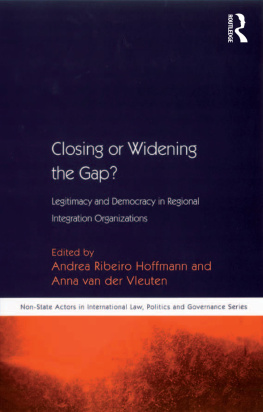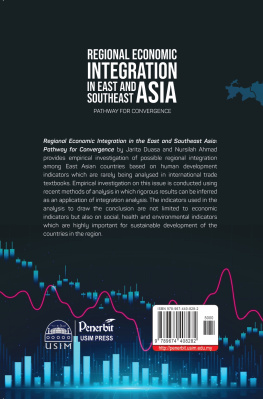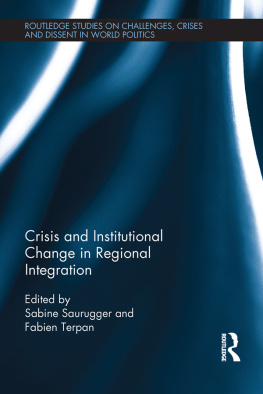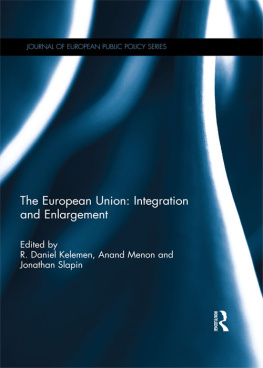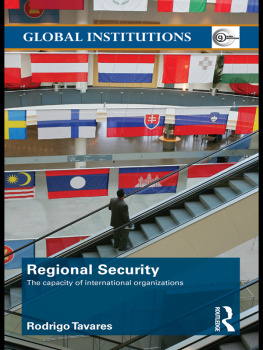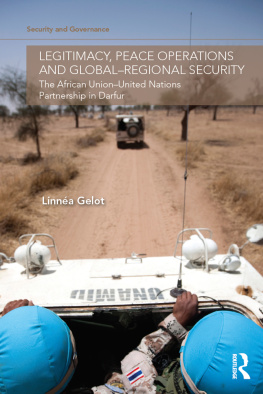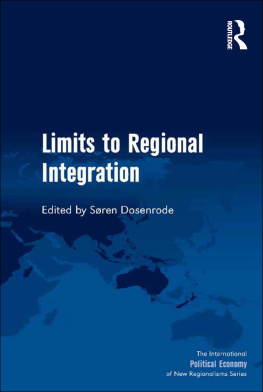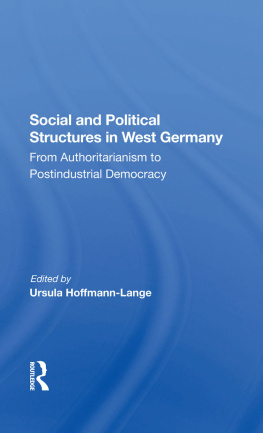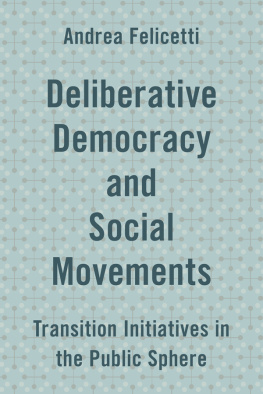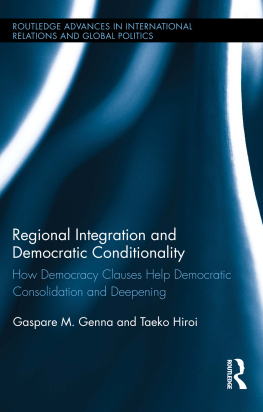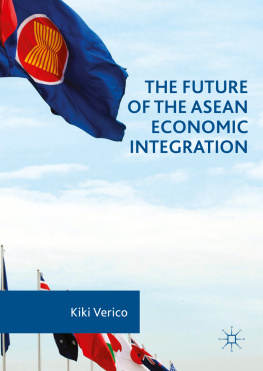CLOSING OR WIDENING THE GAP?
Non-State Actors in International Law, Politics and Governance Series
Series Editors
Dr Math Noortmann, Erasmus University, Rotterdam, The Netherlands; Dr Bob Reinalda, Radboud University Nijmegen, The Netherlands; Professor Dr Bas Arts, Wageningen University and Research Centre (WUR), The Netherlands
The proliferation of non-state actors in the international system over the last three decades has increased the need for a broader theoretical analysis and empirical validation. The series explores the capabilities and impact of non-state actors, such as privately-based transnational corporations, non-governmental organizations (NGOs), international criminal organizations, and liberation movements, as well as intergovernmental organizations (in which NGOs often participate). The series seeks to address this need and to deepen the knowledge and understanding of non-state actors by scholars, practitioners and students in the fields of international law, politics and governance. By emphasizing legal, political and governance aspects of non-state actors activities at the international (global or regional) level, the series intends to transcend traditional disciplinary and organizational boundaries.
Also in the series
The Romani Voice in World Politics
The United Nations and Non-State Actors
Ilona Klmov-Alexander
ISBN 978-0-7546-4173-5
Surviving Global Change?
Agricultural Interest Groups in Comparative Perspective
Edited by Darren Halpin
ISBN 978-0-7546-4204-6
Choosing the Lesser Evil
Understanding Decision Making in Humanitarian Aid NGOs
Liesbet Heyse
ISBN 978-0-7546-4612-9
Closing or Widening the Gap?
Legitimacy and Democracy in Regional Integration Organizations
Edited by
ANDREA RIBEIRO HOFFMANN
Pontifcia Universidade Catlica do Rio de Janeiro, Brazil
ANNA VAN DER VLEUTEN
Radboud University Nijmegen, Institute for Management
Research, The Netherlands
First published 2007 by Ashgate Publishing
Published 2016 by Routledge
2 Park Square, Milton Park, Abingdon, Oxon OX14 4RN
711 Third Avenue, New York, NY 10017, USA
Routledge is an imprint of the Taylor & Francis Group, an informa business
Copyright 2007 Andrea Ribeiro Hoffmann and Anna van der Vleuten
Andrea Ribeiro Hoffmann and Anna van der Vleuten have asserted their moral right under the Copyright, Designs and Patents Act, 1988, to be identified as the editors of this work.
All rights reserved. No part of this book may be reprinted or reproduced or utilised in any form or by any electronic, mechanical, or other means, now known or hereafter invented, including photocopying and recording, or in any information storage or retrieval system, without permission in writing from the publishers.
Notice:
Product or corporate names may be trademarks or registered trademarks, and are used only for identification and explanation without intent to infringe.
British Library Cataloguing in Publication Data
Closing or widening the gap? : legitimacy and democracy in regional international organizations. - (Non-state actors in international law, politics and governance series)
1. International agencies - Evaluation 2. Regionalism (International organization) - Evaluation 3. World politics - 1989-
I. Ribeiro Hoffmann, Andrea II. Vleuten, Johanna Maria van der, 1960-
341.2
Library of Congress Cataloging-in-Publication Data
Closing or widening the gap? : legitimacy and democracy in regional international organizations / [edited] by Andrea Ribeiro Hoffmann and Anna van der Vleuten.
p. cm.-- (Non-state actors in international law, politics and governance series)
Includes bibliographical references and index.
ISBN 978-0-7546-4968-7
1. International agencies--Evaluation. 2. Regionalism (International organization)--Evaluation. 3. World politics--1989- I. Ribeiro Hoffmann, Andrea. II. Vleuten, Johanna Maria van der, 1960-
JZ4850.C56 2007
341.2--dc22
2007025145
ISBN 978-0-7546-4968-7 (hbk)
ISBN 978-1-3155-7245-1 (ebk)
Contents
by Philippe C. Schmitter
Anna van der Vleuten and Andrea Ribeiro Hoffmann
Berry Tholen
Juliana Erthal
Bob Reinalda
Andrs Malamud and Lus de Sousa
Marcelo A. Medeiros
Michelle Ratton Sanchez
Gerda van Roozendaal
Anna van der Vleuten
Andrea Ribeiro Hoffmann
Andrea Ribeiro Hoffmann and Anna van der Vleuten
List of Figures and Tables
List of Contributors
Lus de Sousa, Assistant Researcher, Center for Research and Studies in Sociology (CIES-ISCTE), Lisbon, Portugal.
Juliana Erthal, PhD candidate, Eberhard Karls Universitt Tbingen, Germany.
Andrs Malamud, Assistant Researcher, Institute of Social Sciences (ICS) of the University of Lisbon, Portugal and Assistant Professor, Department of Political Science of the University of Buenos Aires, Argentina.
Marcelo A. Medeiros, Associate Professor, Departement of Social Sciences, Federal University of Pernambuco, Recife, Brazil.
Michelle Ratton Sanchez, Professor, Getulio Vargas Foundation So Paulo Law School, So Paulo, Brazil.
Bob Reinalda, Senior Lecturer, Department of Political Science, Radboud University Nijmegen, Institute of Management Studies, the Netherlands.
Andrea Ribeiro Hoffmann, Assistant Professor, Instituto de Relaes Internacionais, Pontifcia Universidade Catlica, Rio de Janeiro, Brazil.
Philippe C. Schmitter, Professorial Fellow, European University Institute, Florence, Italy.
Berry Tholen, Assistant Professor, Department of Public Administration, Radboud University Nijmegen, the Netherlands.
Anna van der Vleuten, Assistant Professor, Department of Political Science, Radboud University Nijmegen, Institute of Management Studies, the Netherlands.
Gerda van Roozendaal, Assistant Professor, Faculty of Arts, Department of International Relations/International Organizations, University of Groningen, the Netherlands.
Foreword
Ancient Method, Novel Subject, Ambiguous Outcome
Philippe C. Schmitter
This book takes an ancient method, comparison, and applies it to a novel subject, Regional Integration Organizations. One of the most evident descriptive features, first, of the post-World War II era and, then with renewed vigour, after the end of the Cold War has been the proliferation of these RIOs. Today, there is virtually not a region of the globe that does not have at least one of them and there are many countries that belong to several of them.
Political science does not seem to know where to place these organizations. Its sub-field of international relations to the extent that it has been dominated by realism and its step-child, neo-realism has some difficulty even in explaining how these islands of regional cooperation and integration can exist in the context of (allegedly) pervasive rivalry and anarchy. If their existence is recognized, it is quickly discounted either as a side-product of domination by some hegemonic power a sort of second-grade empire or as a convenient faade behind which sovereign states strike momentary compromises based exclusively on national interests and relative power. Students of comparative politics have been even less well equipped to deal with RIOs and have tried their best to stay away from them, leaving the descriptive effort to so-called area specialists. The only scholars who took them at all seriously for many years were members of a declining breed of IO Specialists perhaps best exemplified by Innis Claude Jr. and his masterful text,

